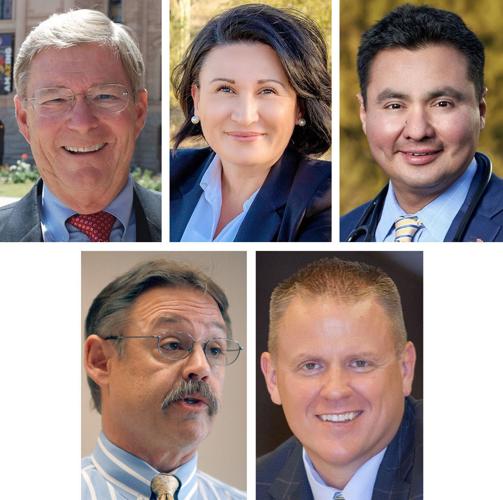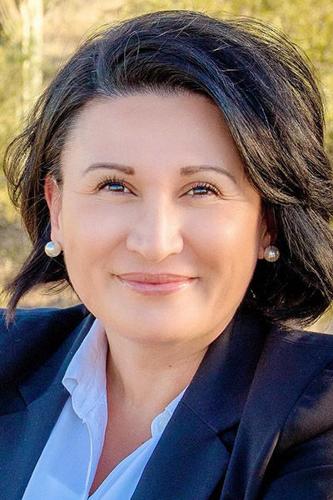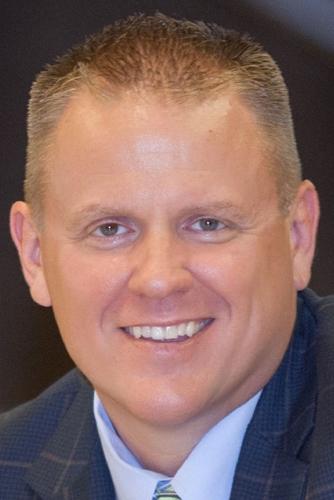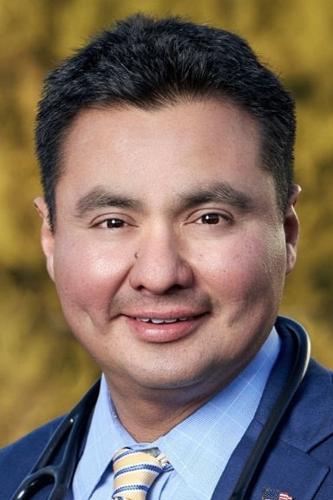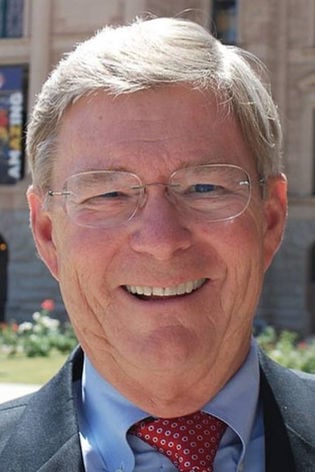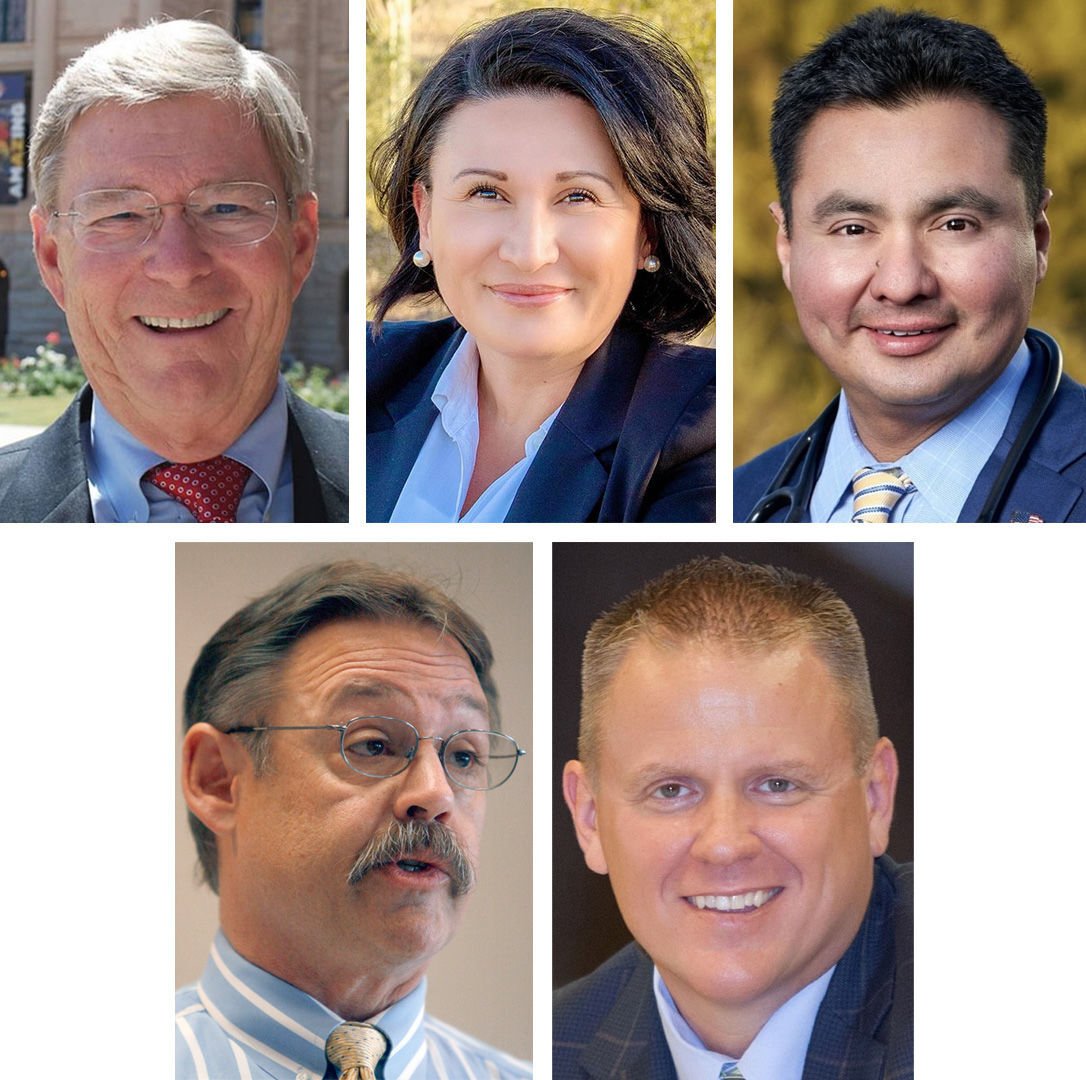Voters in state Legislative District 11 will elect one candidate for the Senate between Republican incumbent Sen. Vince Leach, a businessman and SaddleBrooke resident, and Democrat JoAnna Mendoza, a Red Rock resident with a 20-year career in the military, retiring from the Marine Corps.
In the House of Representatives race, three candidates are running for two seats. The Republican incumbents are Rep. Mark Finchem, an energy policy analyst and Oro Valley resident, and Rep. Bret Roberts, a former constable in Pinal County who resides in Maricopa.
The third candidate is Democrat Felipe Perez, a Tucson physician for El Rio Community Health Center.
Each candidate who could be reached talked about the top two issues in their campaign. The district covers Oro Valley, Catalina, Marana, Avra Valley, Picture Rocks and part of Pinal County.
Roberts did not respond to emailed questions, or repeated telephone calls for this story.
Senate District 11
Leach has been a senator since 2019 and before that he served in the House of Representatives representing District 11 since 2015.
He said a top campaign priority is “reestablishing the sound, solid economy that Arizona had right up to the start of COVID-19. That economy included strong job growth, strong wage growth, reduced regulations, and a large number of people and companies moving to Arizona because of the opportunities here.”
“COVID-19 has considerably dampened that economy, however, the underlying structure for a great economy is still there,” said Leach.
Leach said with the help of Arizona’s citizens the state “is prepared to weather the storm of COVID-19” and continue to attract people to move here and work here. After repeated phone messages, the senator still did not elaborate on his plans to revitalize businesses that took a downturn during the pandemic, or about his plans to attract businesses to the state and creating jobs.
Leach said another priority is balancing the state’s budget. However, Leach did not elaborate on how he would work to do so, saying only that “Arizona needs to continue to spend less money than it receives from the taxpayers.”
Because of business closures and job losses due to the pandemic, the state may end up with more than a $1 billion deficit, state budget officials have said in news reports.
Leach said when he was first elected to serve in the House of Representatives in 2015, Arizona then had a $1 billion deficit. “Through a careful and thoughtful budgeting process,” said Leach, the state maintained a balanced budget since prior to the pandemic. Leach also said the state built up a $1 billion rainy day fund, invested in infrastructure, reduced taxes, and increased allocations for education, including teacher salaries.
However, education funding and teacher salaries increased after statewide teacher walkouts and protests in 2018, which led to a 20 percent salary increase over the past two years.
Leach was born in Wisconsin and moved to SaddleBrooke in 2007 because he said he enjoyed Arizona’s weather, quality of life and low taxes.
He is vice chairman of the Appropriations Committee and a member of the Finance, Government and Judiciary committees. Leach also serves on the Joint Committee on Capitol Review and the Joint Legislative Budget Committee.
He said he has worked to increase education funding and supports reforms having positive effects on students’ performance in K-12. Leach said he advocates for border security and a stop to illegal immigration.
Leach earned his bachelor’s in political science and history from the University of Wisconsin-Stevens Point in 1970. He served in the Army from 1970 to 1972 as a section chief in field artillery. He was honorably discharged as an E4.
He worked over 35 years in the agriculture and metals industry in sales, sales management and business management. Companies include Chromalloy Farm Systems and Allied Mineral Products. Since 2005, he became owner of Diversified Options LLC, a multifaceted company with a focus on financial and retail consulting.
Challenger Mendoza’s top two issues are public education and access to health care.
“Our public education system is massively underfunded and failing our future generations. Every child should have the opportunity to gain a quality education — regardless of ZIP code or socioeconomic status or the color of their skin,” said Mendoza, a Democrat.
She said “education is key to the growth of our economy,” including “early childhood education, which supports working parents and will aid in our economic recovery from the pandemic.” Mendoza explained that working parents must “have safe, affordable child-care options that also provide quality learning opportunities.” She said quality education builds a strong workforce, attracts new economic development and employers, and secures the success of children.
Mendoza said Arizona teachers are underpaid, and when schools were in session with students on campus before the pandemic, classrooms were overcrowded, and particularly in rural areas, there was a lack of certified teachers and special-education teachers. She said buildings with serious infrastructure issues remain in disrepair, and students traveled long distances to school on buses without air conditioning or heating systems.
Now with the pandemic, school districts face challenges of providing high-quality virtual education and navigating the digital divide with potentially less funding, Mendoza said. She said she favors the Invest in Ed ballot initiative that will bring $940 million annually to K-12 public schools through an income tax surcharge to the wealthiest earners in the state. She also favors modernizing the state’s tax code and eliminating special-interest tax breaks and loopholes for corporations.
When it comes to health care, Mendoza said it “is a human right and everyone should have access to affordable quality health care.” She said that before the pandemic, the state “faced a major shortage of physicians and medical care professionals, and the consequences of this have gotten even worse with the growing number of folks needing medical attention due to COVID-19.”
“We can address some of the issues with our health-care system by creating private-public partnerships that increase access to care, sending mobile medical units into remote areas, expanding telemedicine and encouraging young people in rural communities to go into health professions,” said Mendoza.
Mendoza said Arizona Health Care Cost Containment System, the state’s Medicaid program for the poor, and KidsCare, the state’s health insurance for children, need to be protected from funding cuts to make up for state budget shortfalls.
“This is even more important during the COVID-19 pandemic, when so many people have lost their jobs, had their hours reduced, or are continuing to work on the front lines and need reliable access to health-care services,” Mendoza said. She said budget shortfalls can be addressed by generating additional revenue by modernizing the state’s tax code.
Mendoza describes herself as a retired Marine, mom and a native Arizonan who grew up in Eloy. She worked alongside her family in cotton fields as a child in Pinal County and at age 17 she joined the Navy. After completing her service she joined the Marines, and was deployed on combat tours to Iraq and Afghanistan.
In 2018, Mendoza was a congressional staffer for Democratic U.S. Rep. Tom O’Halleran. She said it was heartbreaking to see the “struggles people continue to face in our impoverished communities.”
Mendoza, a veteran outreach coordinator at Pima Community College, has served on the Red Rock School District Governing Board since 2019. She received a bachelor’s degree in intelligence studies from the American Military University in 2013 and a master’s in leadership from Grand Canyon University in 2019.
House District 11
Perez, a political newcomer, practices family medicine at El Rio’s Cherrybell Health Center, just south of East 22nd Street, east of South Kino Boulevard.
As a doctor working on Tucson’s south side and growing up in Somerton, an agricultural community in Yuma County, Perez said he is too familiar with what underserved populations face when it comes to having timely access to medical care.
That is a reason he became a doctor, moving to Tucson in 1997 to attend the University of Arizona. He earned a bachelor’s in general biology in 1999 and a bachelor’s in biochemistry in 2001. He was accepted into the UA College of Medicine and graduated with a medical degree in 2006.
A top issue in his campaign, said Perez, is the need for affordable and timely access to health care. He said addressing the shortage of physicians in rural and underserved areas is an answer to this crisis. That is why as director of a family medicine program he founded in 2013 at El Rio, Perez trains residents who also learn about specialized areas in dealing with underserved populations, which have higher rates of diabetes and obesity.
“Once they complete the program, doctors are encouraged to continue serving where there are physician shortages, such as in rural areas, on Native American reservations, or at community health centers,” Perez explained. He modeled the program at El Rio after his residency training at Scripps Mercy Hospital in Chula Vista, California.
“Arizona has a severe physician shortage. We will need almost 2,000 physicians to meet the needs in the next 10 years,” said Perez, referring to a report by the UA Center for Rural Health under the Mel & Enid Zuckerman College of Public Health.
He said doctors can help by serving in areas where there are shortages because “too many hardworking people are unable to afford to see a doctor, get their prescriptions, or afford a lifesaving treatment. No one should go bankrupt because of the cost of medical care. We need to make sure that we protect health care and prioritize the well-being of all Arizonans.”
Adequate funding of health care is an issue the Legislature must tackle, said Perez, adding that seniors must “have the services they need to live out their golden years” since they have worked hard their entire lives and invested in the state.
Perez said his second priority is the “need to fully fund Arizona’s public schools to the best standards, and make education accessible to all kids equally,” including providing students with meals and transportation for success in learning. He also favors tutoring programs and schools providing mental-health care for teens in need.
Perez said he favors recruitment programs for educators to teach in underserved and rural areas with incentives such as loan repayment assistance programs that should be enacted by the state.
He said it does not make sense lawmakers refuse to fully fund education. “Good schools create a strong workforce, increase property values and strengthen the economy,” Perez said.
“If everyone pays their fair share of taxes, we can totally fund education without raising taxes,” said Perez.
Incumbent Finchem said his two top campaign issues are creating jobs and getting people back to work after losing their homes, businesses and life savings during this pandemic. However, he did not elaborate on his plans for accomplishing these goals after repeated telephone messages asking him for deeper answers.
“I have dedicated myself to reducing the size and impact of government over our lives,” said Finchem. “Politicians of the past have spent us into oblivion, and it will not be easy to restore sanity in spending in the halls of bureaucracy.
“We need tough representation that holds people accountable for what they do with our tax dollars. Over the last two terms of service, I have demonstrated strong leadership, conservative values, and fidelity to our constitutions, both sate and federal,” said Finchem, who believes that the state is on a path “to correct errors of the past with a common-sense approach to limited government.”
Finchem serves on the Judiciary Committee and the Natural Resources, Energy and Water Committee, and is chairman of the Federal Relations Committee. He has represented District 11 since 2015.
Finchem was born in Detroit and lived with his family in several Midwestern cities, including Kalamazoo, Michigan, according to his campaign website. He attended Western Michigan University and in 1978 he joined the Kalamazoo Fire Department as a firefighter paramedic.
He later cross-trained as a police officer, graduating from the Southwest Michigan Regional Police Academy in 1982. He said he received an associate’s degree in criminal justice from Kalamazoo Valley Community College in 1984. Finchem said he retired in 1999 from the Kalamazoo Department of Public Safety after working 21 years in patrol and fire suppression.
Finchem then moved to Tucson and joined software maker Intuit Inc., working in the small-business accounting division. He later led the company’s product registration and business products unit. He left Intuit in 2007 and became a real estate broker. He also returned to college and graduated from Grand Canyon University with a bachelor’s in government administration in 2019.
Finchem continues working as a vice president of business development for Clean Power Technologies. He is an energy policy analyst.
Even though Roberts, the third candidate in the House race did not participate for this story, readers can learn about him at votebretroberts.com


